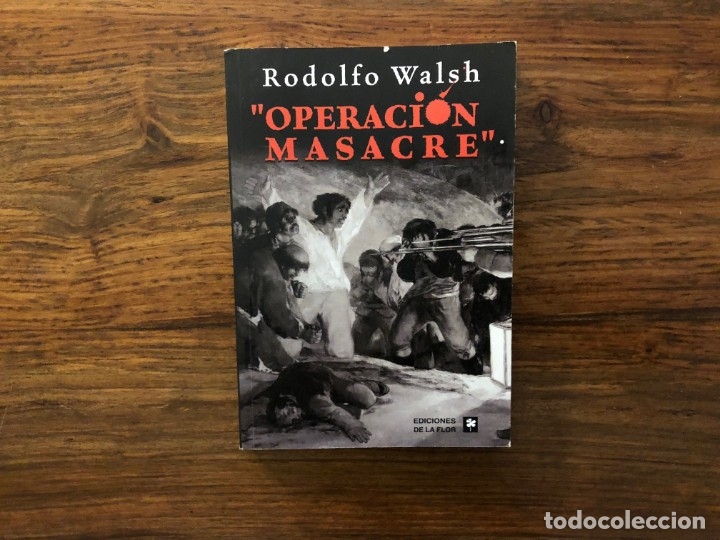

He signed his letter “with no hope of being heard, and with the certainty of being persecuted.” Minutes after posting the first copies from a mailbox in downtown Buenos Aires, he was ambushed and machine-gunned in the street by the junta’s secret policemen. “You have arrived at a form of absolute, metaphysical torture, unbounded by time,” he wrote. Steel while prioritizing military spending to the point that Buenos Aires had devolved into “a slum with 10 million inhabitants.”Ĭounting off what he called “the raw statistics of the terror,” Walsh went on to make a cosmic case against the dictatorship. He outlined in detail how the regime favored the foreign interests of Shell, Siemens, ITT, and U.S.

He devoted a large part of the letter to the newly instituted program of Kissinger-approved Chicago School economics, which Walsh considered no less ruinous than the ruling junta’s paranoid and ultraviolent mode of national security. On March 24, 1977, the one-year anniversary of the coup, Walsh addressed an open letter to the generals and admirals who had seized control of the state, itemizing their crimes and listing their victims: “15,000 missing, 10,000 prisoners, 4,000 dead, tens of thousands in exile.” Many Montoneros, including Walsh’s daughter Maria Victoria, became casualties of the undeclared and unofficial “Dirty War” that started some time before the military coup of 1976 and ended with the general election of 1983. Later, in his native Argentina, he was a chief intelligence officer for the Montoneros, leftist urban guerrillas who opposed the country’s ascendant right wing. In a relatively short and restless life, he was a masterful chess player, a self-taught sleuth and code breaker, an award-winning fiction author turned investigative reporter, an artist and intellectual who took up a gun against his own government.Īs a journalist and activist in post-revolutionary Cuba, Walsh personally intercepted and decrypted the secret CIA telex that gave Fidel Castro advance warning of the Bay of Pigs invasion. Rodolfo Walsh was a rare man of words and action, though by all accounts he struggled to reconcile the two.


 0 kommentar(er)
0 kommentar(er)
